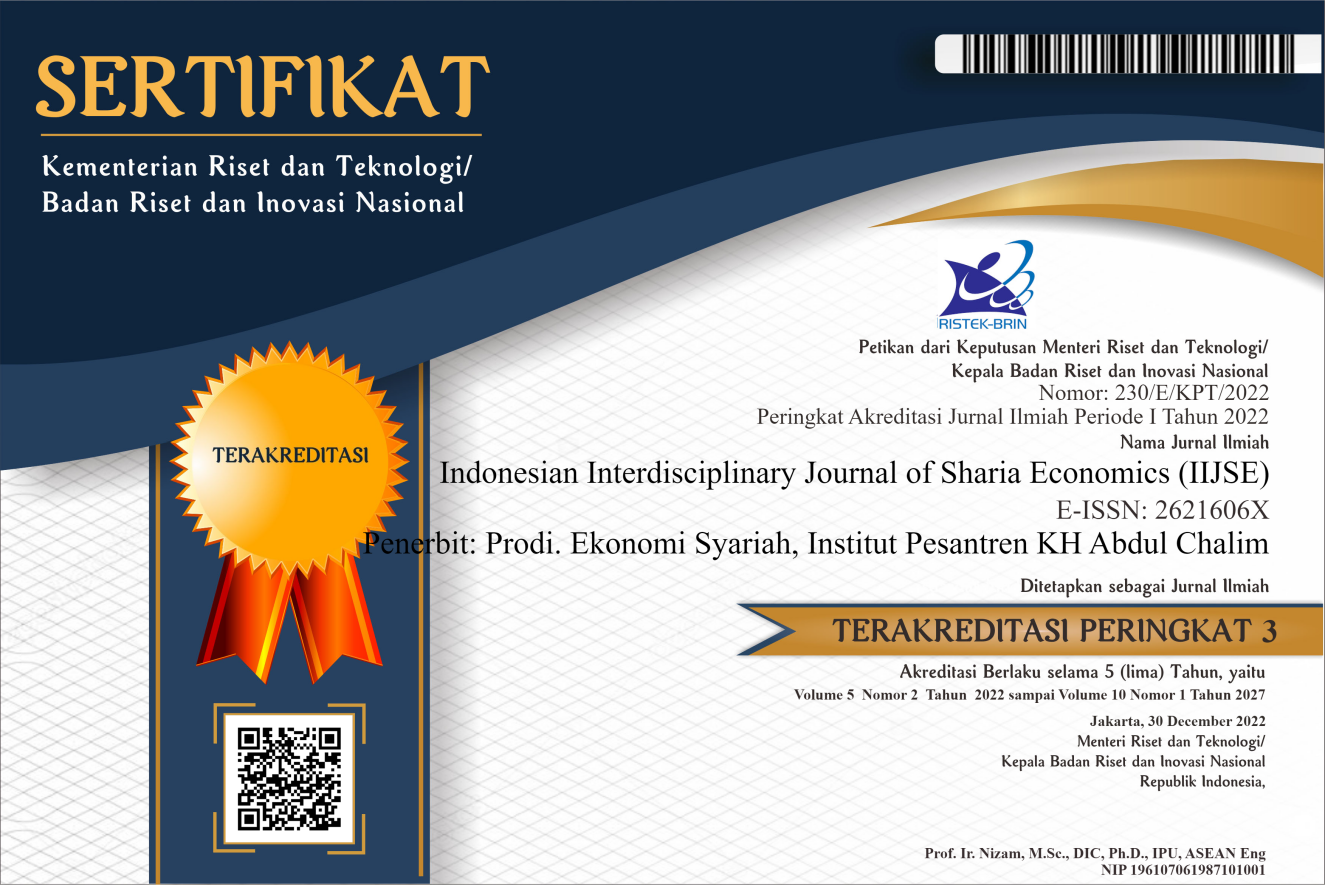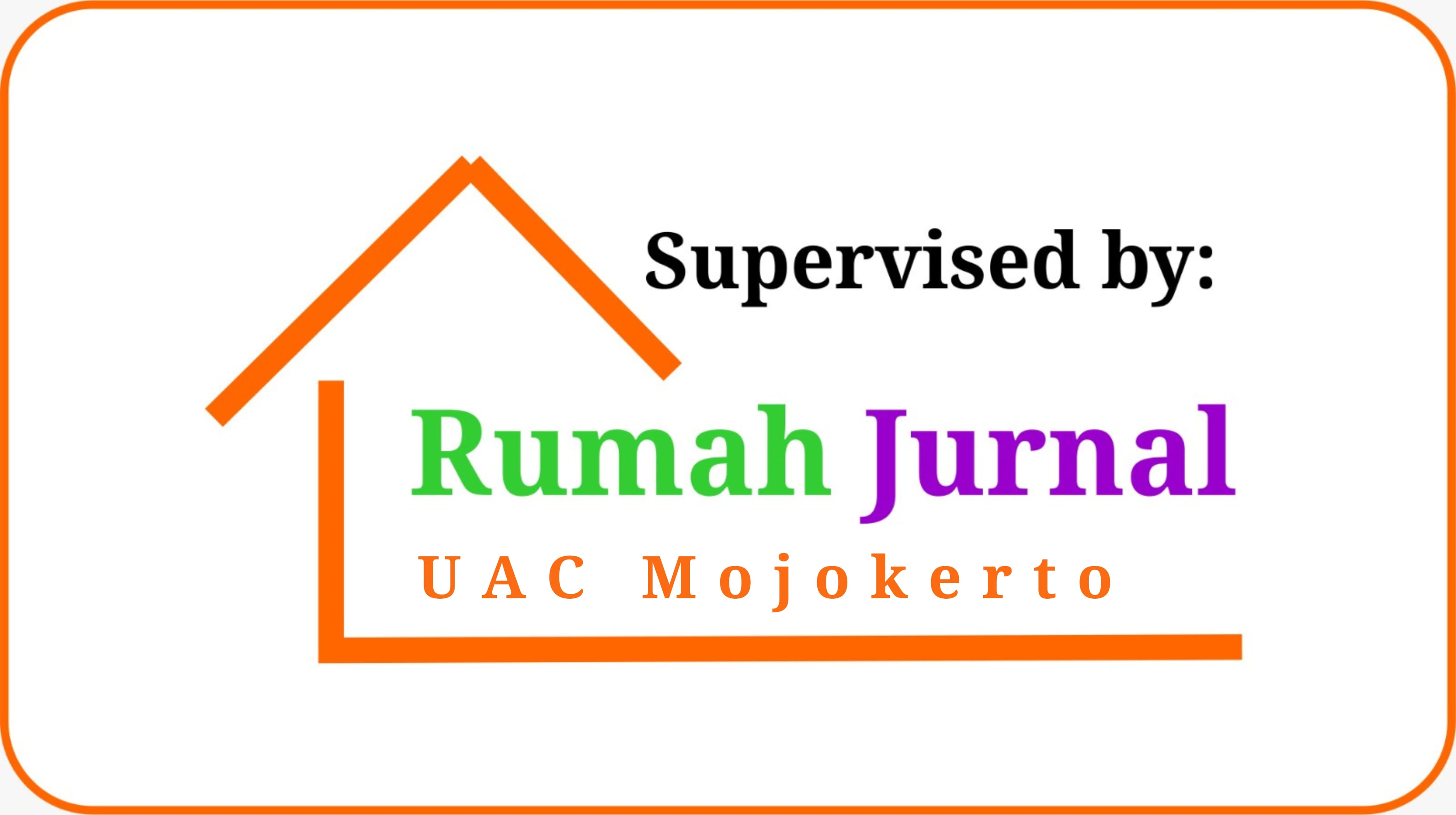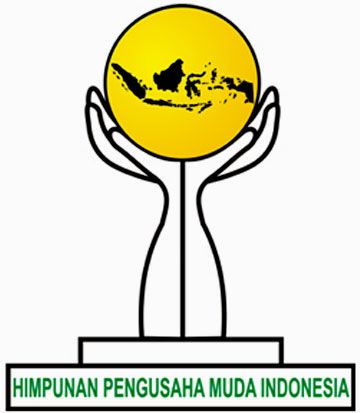The Influence of Knowledge Sharing and Self-Efficacy on Innovative Behavior in Sales Employees in Cirebon
Abstract
This study aims to analyze the effect of knowledge sharing and self-efficacy on innovative behavior within a sales employee environment. It employs quantitative methods to collect primary data through the distribution of Likert scale questionnaires directly to sales companies in Cirebon City. Secondary data were gathered from research methodology books as well as national and international academic journals. The researchers used SPSS for data analysis to test the hypotheses and research models. Using a non-probability purposive sampling method, the study sampled 163 sales employees from various companies. Knowledge sharing, which reflects the willingness and ability of individuals to exchange information with colleagues, and self-efficacy, which refers to an individual's belief in their capability to complete tasks and face challenges, are identified as key factors in driving innovation. Through a quantitative approach using a survey method, data were collected from respondents across various industry sectors. The analysis indicates that knowledge sharing significantly enhances individuals' propensity to innovate, while self-efficacy positively and significantly influences innovative behavior. The implications of this study highlight the importance of fostering a culture of knowledge sharing and strengthening self-efficacy within organizations to create a dynamic and innovative work environment.
Downloads
References
Bandura, A., Freeman, W. H., & Lightsey, R. (1999). Self-Efficacy: The Exercise of Control. Journal of Cognitive Psychotherapy, 13(2), 158–166. https://doi.org/10.1891/0889-8391.13.2.158
Bock, G. W., Zmud, R. W., Kim, Y. G., & Lee, J. N. (2005). Behavioral intention formation in knowledge sharing: Examining the roles of extrinsic motivators, social-psychological forces, and organizational climate. MIS Quarterly: Management Information Systems, 29(1), 87–111. https://doi.org/10.2307/25148669
Bos-Nehles, Anna. C., & Veenendaal, A. A. R. (2019). Perceptions of HR practices and innovative work behavior: the moderating effect of an innovative climate. The International Journal of Human Resource Management, 30(18), 2661–2683. https://doi.org/10.1080/09585192.2017.1380680
BOZDOĞAN, S. C. (2023). The Mediating Role of Creative Self-Efficacy in The Relationship Between Knowledge Sharing Behavior and Employee Innovation Behavior: A Study in The Recycling Industry. Bingöl Üniversitesi İktisadi ve İdari Bilimler Fakültesi Dergisi, 7(1), 137–153. https://doi.org/10.33399/biibfad.1212900
Brown, S. P., Cron, W. L., & Slocum, J. W. (1998). Effects of Trait Competitiveness and Perceived Intraorganizational Competition on Salesperson Goal Setting and Performance. Journal of Marketing, 62(4), 88–98. https://doi.org/10.1177/002224299806200407
Carmeli, A., Meitar, R., & Weisberg, J. (2006). Self-leadership skills and innovative behavior at work. International Journal of Manpower, 27(1), 75–90. https://doi.org/10.1108/01437720610652853
Castaneda, D. I., & Cuellar, S. (2020). Knowledge sharing and innovation: A systematic review. Knowledge and Process Management, 27(3), 159–173. https://doi.org/10.1002/kpm.1637
Chang, J.-C., Chen, S.-C., Hsiao, H.-C., & Tu, Y.-L. (n.d.). The Influence of Teachers’ Self-efficacy on Innovative Work Behavior. https://www.researchgate.net/publication/268405600
Cundawan, A., Marchyta, N. K., & Santoso, T. (2021). Mediating effect of creative self-efficacy on the influence of knowledge sharing towards innovative work behavior among millennial knowledge workers. Jurnal Manajemen Dan Pemasaran Jasa, 14(2), 149–164. https://doi.org/10.25105/jmpj.v14i2.8873
De Vries, R. E., Van Den Hooff, B., & De Ridder, J. A. (2006). Explaining knowledge sharing: The role of team communication styles, job satisfaction, and performance beliefs. Communication Research, 33(2), 115–135. https://doi.org/10.1177/0093650205285366
Gong, Y., Huang, J. C., & Farh, J. L. (2009). Employee learning orientation, transformational leadership, and employee creativity: The mediating role of employee creative self-efficacy. Academy of Management Journal, 52(4), 765–778. https://doi.org/10.5465/AMJ.2009.43670890
Hair, J. F., Black, W. C., Babin, B. J., & Anderson, R. E. (2019). MULTIVARIATE DATA ANALYSIS EIGHTH EDITION. www.cengage.com/highered
Hansen, J. A., & Pihl-Thingvad, S. (2019). Managing employee innovative behaviour through transformational and transactional leadership styles. Public Management Review, 21(6), 918–944. https://doi.org/10.1080/14719037.2018.1544272
Herawati, N., Sri Mulyani, A., & Tandirerung Ranreallo, A. (2024). Manajemen Sumber Daya Manusia Konsep, Implementasi, Dan Tantangan Di Era Digital. INNOVATIVE:Journal Of Social Science Research, 4(5), 9633–9643.
Hidayat, A. S., & Rofaida, R. (2021). PERAN KEPEMIMPINAN TRANSFORMASIONAL DAN KNOWLEDGE SHARING DALAM MENSTIMULASI PERILAKU INOVATIF DI INSTITUSI PENDIDIKAN. Jurnal Ilmu Manajemen, 9(2), 768–778.
Hsu, M., Sheng-Tsung, H., & Fan, H.-L. (2011). Creative Self-Efficacy and Innovative Behavior in a Service Setting: Optimism as a Moderator. Journal of Creative Behavior, 45, 258–272. https://doi.org/10.1002/j.2162-6057.2011.tb01430.x
Jufrizen, Khair, H., & Loviky, F. B. (2023). Work Engagement and Emotional Intelligence on Personnel Performance: The Mediating Role of Job Satisfaction. International Journal of Business Economics (IJBE), 5(1). https://doi.org/10.30596/ijbe.v5i1.16499
Kasali, R. (2017). Disruption: tak ada yang tak bisa diubah sebelum dihadapi motivasi saja tidak cukup. Gramedia Pustaka Utama.
Kmieciak, R. (2021). Trust, knowledge sharing, and innovative work behavior: empirical evidence from Poland. European Journal of Innovation Management, 24(5), 1832–1859. https://doi.org/10.1108/EJIM-04-2020-0134
Krishnan, B. C., Netemeyer, R. G., & Boles, J. S. (2002). Self-efficacy, competitiveness, and effort as antecedents of salesperson performance. Journal of Personal Selling and Sales Management, 22(4), 285–295. https://doi.org/10.1080/08853134.2002.10754315
Kurniawati, E. (2022). Perencanaan Sumber Daya Manusia pada PT ABC. JMK (Jurnal Manajemen Dan Kewirausahaan), 7(2). https://doi.org/10.32503/jmk.v7i2.2513
Lee, H. S., & Hong, S. A. (2014). Factors Affecting Hospital Employees’ Knowledge Sharing Intention and Behavior, and Innovation Behavior. Osong Public Health and Research Perspectives, 5(3), 148–155. https://doi.org/10.1016/j.phrp.2014.04.006
Leong, C. T., & Rasli, A. (2014). The Relationship between Innovative Work Behavior on Work Role Performance: An Empirical Study. Procedia - Social and Behavioral Sciences, 129, 592–600. https://doi.org/10.1016/j.sbspro.2014.03.717
Mehralian, G., Nazari, J., & Ghasemzadeh, P. (2018). The effects of knowledge creation process on organizational performance using the BSC approach: the mediating role of intellectual capital. Journal of Knowledge Management, 22. https://doi.org/10.1108/JKM-10-2016-0457
Noerchoidah, N., Ariprabowo, T., & Nurdina, N. (2022). EFIKASI DIRI DAN PERILAKU INOVATIF: PERAN DUKUNGAN ORGANISASI. Jurnal Ilmu Manajemen, 10(4), 1026–1036. https://doi.org/10.26740/jim.v10n4.p1026-1036
Solahudin, A., Fatimah, S. E., & Sulistiowati, L. H. (2024). Factors affecting affective commitment. Edelweiss Applied Science and Technology, 8(6), 3475–3483. https://doi.org/10.55214/25768484.v8i6.2738
Tierney, P., & Farmer, S. M. (2002). CREATIVE SELF-EFFICACY: ITS POTENTIAL ANTECEDENTS AND RELATIONSHIP TO CREATIVE PERFORMANCE. Academy of Management Journal, 45(6), 1137–1148. https://doi.org/10.2307/3069429
Tsai, W. (2001). KNOWLEDGE TRANSFER IN INTRAORGANIZATIONAL NETWORKS: EFFECTS OF NETWORK POSITION AND ABSORPTIVE CAPACITY ON BUSINESS UNIT INNOVATION AND PERFORMANCE. Academy of Management Journal, 44(5), 996–1004. https://doi.org/10.2307/3069443
van den Hooff, B., & de Ridder, J. A. (2004). Knowledge sharing in context: the influence of organizational commitment, communication climate and CMC use on knowledge sharing. Journal of Knowledge Management, 8(6), 117–130. https://doi.org/10.1108/13673270410567675
Yuan, F., & Woodman, R. W. (2010). Innovative Behavior in the Workplace: The Role of Performance and Image Outcome Expectations. Academy of Management Journal, 53(2), 323–342. https://doi.org/10.5465/amj.2010.49388995
Copyright (c) 2025 Afrizal Fathur Rachman, Moch Rakan Siraj

This work is licensed under a Creative Commons Attribution-ShareAlike 4.0 International License.
Authors who publish with this journal agree to the following terms:
- Authors retain copyright and grant the journal right of first publication with the work simultaneously licensed under a Creative Commons Attribution License that allows others to share the work with an acknowledgment of the work's authorship and initial publication in this journal.
- Authors are able to enter into separate, additional contractual arrangements for the non-exclusive distribution of the journal's published version of the work (e.g., post it to an institutional repository or publish it in a book), with an acknowledgment of its initial publication in this journal.
- Authors are permitted and encouraged to post their work online (e.g., in institutional repositories or on their website) prior to and during the submission process, as it can lead to productive exchanges, as well as earlier and greater citation of published work.


















